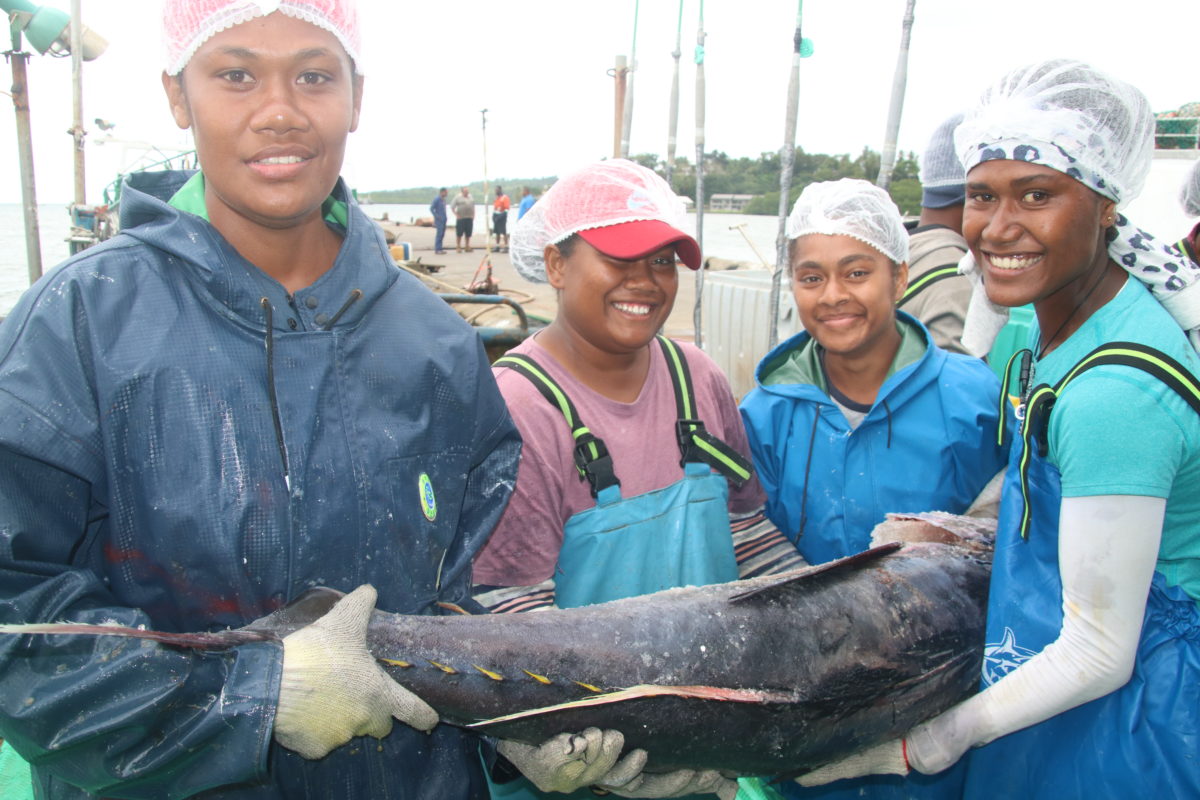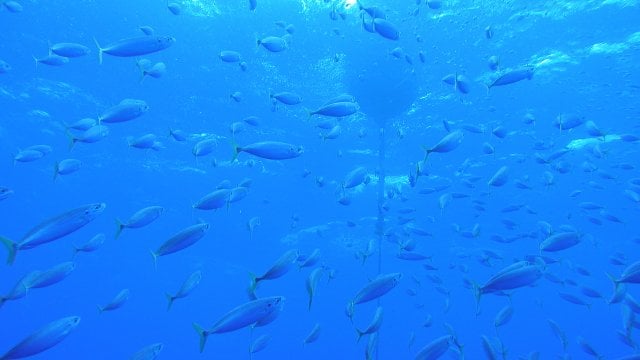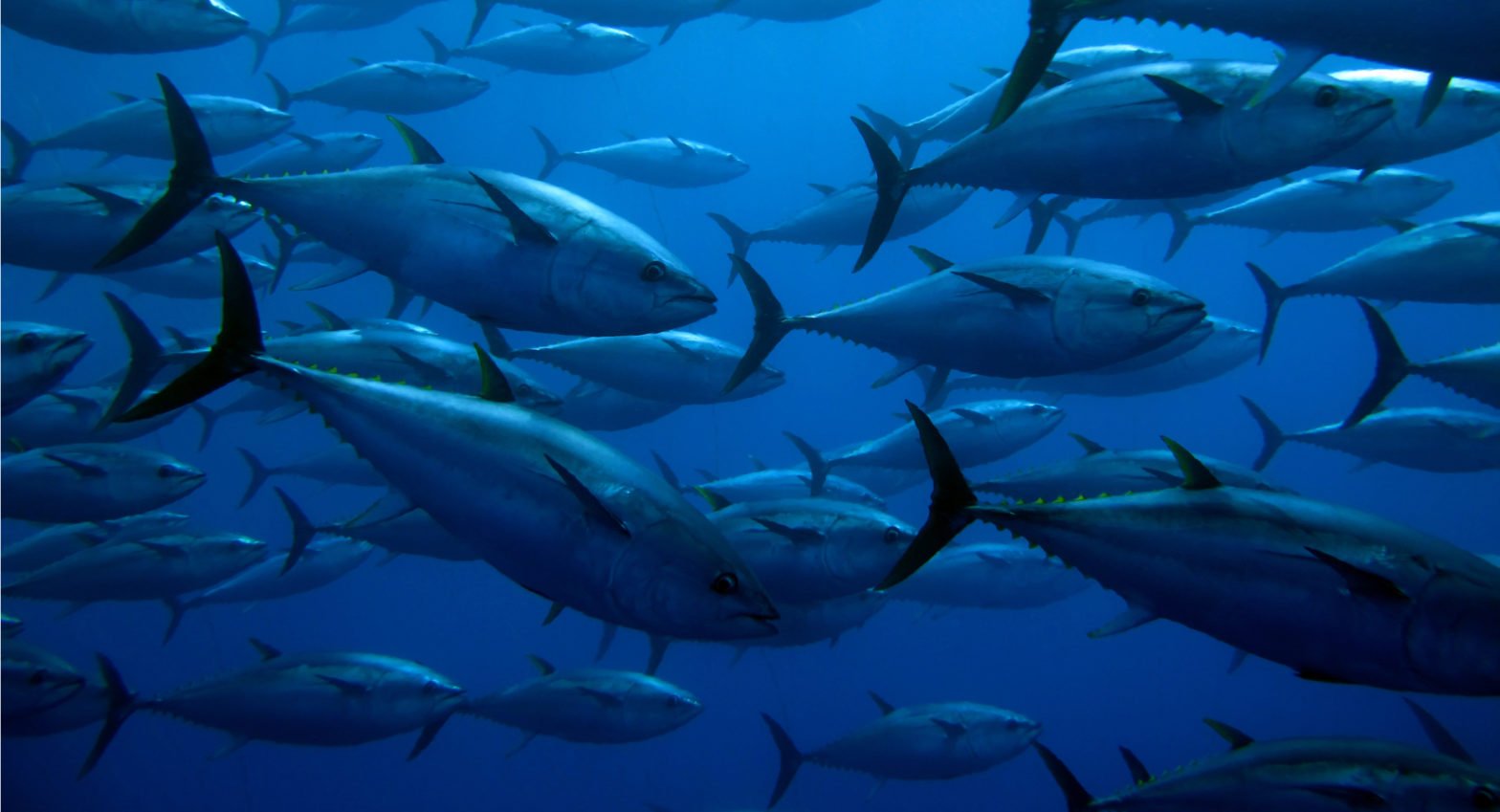Offshore Fisheries Gender Report and findings to strengthen gender equity in Fiji’s offshore sector
In a bid to strengthen gender inclusion and gender mainstreaming in Fiji’s tuna offshore sector, WWF and partners on September 30 launched a Gender Mainstreaming in Fiji’s Offshore Tuna Industry Report.
With today being World Maritime Day and this year’s theme, Seafarers: at the core of shipping’s future, the WWF led report provides a snapshot of improving the understanding of the longline fishing sector from a socio-economic and cultural perspective with a focus on gender inclusion and mainstreaming in the offshore fisheries sector.
In virtually launching the report, Fiji’s Minister for Fisheries, Semi Koroilavesau stated that the report and its findings was a step in the right direction in improving awareness, and to strengthen gender equity in Fiji’s offshore sector.
“There is also a lack of gender-disaggregated data overall, and a knowledge gap about consumption patterns and the differing constraints on men and women to enable more effective participation in markets. This lack of data on women’s roles in offshore fisheries perpetuates the existing assumption that women’s interests are taken care of by men, and that women are better off employed in other sectors and not in the offshore fishing sector.”
“This led to Pacific Leaders declaration on Gender Equality. This means that we need to invest in the collection and use of disaggregated data across sectors, and ensure that there is sufficient budget allocation to address the needs of gender equality,” highlighted Koroilavesau.
Dr Mark Drew, WWF-Pacific’s Director said: “although the work on gender mainstreaming may not be new, its application and thought process in relation to its relevance and its impact on Fiji’s offshore fisheries sector has not been fully explored, this report is a step in the right direction in exploring this, and this was an area WWF and partners through its Developing Sustainable and Responsible Tuna Longline Fisheries in Fiji Project that is funded by the government New Zealand embarked on – to improve understanding and knowledge of the different implications when addressing gender inclusion and gender mainstreaming in the development of the tuna industry in Fiji and how these challenges can be effectively addressed.”
“I am optimistic that the Gender Mainstreaming in Fiji’s Offshore Tuna Industry Report will not only build capacity for the fishing sector but more importantly, it complements the collective approach that Fiji and its partners are undertaking in the sustainable use and protection of our limited resources and people,” added Dr Drew.
The consultations and production of the report was implemented through the Developing Sustainable & Responsible Tuna Longline Fisheries in Fiji Project that is a partnership between the Ministry of Fisheries,
Fiji Fishing Industry Association, Fiji Maritime Academy and WWF and funded by the New Zealand Government through its Ministry of Foreign Affairs and Trade(MFAT).
Fiji Fishing Industry Association’s (FFIA) President, Radhika Kumar highlighted that the onus now was for all stakeholders to work together.
“We do hope that through this report, the responsible Government Ministries will establish an active working group comprising of the public sector, IGOs, NGOs and the fishing industry to work on the recommendation and report back within 6 months…an independent body to be established in Suva where seafarers from both the national fishing fleet, the Fiji based foreign fishing fleet and all foreign fishing vessels visiting Suva can lodge their complaints. This body will have in place procedures and processes to deal with the received complaints in a professional and timely manner to resolve the complaints,” highlighted FFIA’s President.
The Minister for Fisheries added that at a regional stance, the Forum Fisheries Agency (FFA) has increased the focus on gender equality and social inclusion in Pacific fisheries, in its work for the next few years with gender-related policies have been in place in FFA since 2016.
“We need to use the findings to harness and improve our regional and national standards in addressing gender needs. This may include providing robust legislation and policy needs in addition to proper working conditions that set the platform towards achieving gender equality. We all know that these needed changes will take time, but with our collective efforts and the strength we have through cooperation, we will prevail,” added the Minister for Fisheries.
The report will be used by the Pacific Community (SPC) as a case study for a handbook on gender and social inclusion in the offshore fisheries sector among other case studies from the region.
KEY FINDINGS FROM THE REPORT:
*Gender participation in the tuna longline industry in Fiji has specifically been set back by the lack of basic facilities on board vessels to ensure women’s safety and well-being. There are no specific processes and mechanisms to ensure reporting and proper recording and follow up by police on sexual harassment and human rights abuses.
*The industry has been viewed as a male domain, and women joining the industry are expected to live and work within very restrictive situations.
*Cultural perceptions and stereotypes continue to undermine progresses that women are making in the industry.
*In the industry, human rights abuse, issues related to contractual agreements, and sexual harassment are issues that need to be discussed and addressed. The recent launching of the National Anti-Human Trafficking Strategies and Action Plan has shed light on emerging issues mainly related to forced labor or sexual exploitation which are linked to the fishing industry. There are also in place maritime regulations that could address these issues, however, implementation and enforcement of existing regulations have not been effective.
* Consultations with industry representatives, FFIA, and other stakeholders highlighted the need for more work on data collection, setting baselines for gender work and the need for cost benefit analysis on the participation of both men and women in the offshore fisheries sector (sea going).
* Participation in the industry has positive impacts for both men and women; however, the negative impacts are often directly felt by women. The increase in a woman’s work load and domestic responsibilities when husbands are on long fishing trips, poor working conditions in processing factories, the sex trade, and the related transmission of sexually transmitted diseases including HIV/AIDS, and alcohol and drug abuse are some negative aspects that affect the health and wellbeing of women.
*In 2020, the FFIA consisted of 63 fishing vessels and 18 companies and employment ranged from fishing activities (seagoing), fish processing (onshore), cold storage, engineering workshop and management, finance and administration which included a total of 1,429 men and 126 women. Of these, seagoing fishing activities involved 1,032 men and five women.
*Current gender participation at PAFCO, the largest processing plant in Fiji, is 33.5 percent males and 66.5 percent females. 88 percent of females employed at PAFCO work in the processing sector and they make up 46 percent of support workers. Participation of women in five fishing companies visited in Suva revealed that women dominantly worked in on-shore facilities.
*Regulations exist that deal with sexual harassment cases that occur within Fiji’s EEZ however addressing reported cases and enforcing the regulations remain weak.
*Working conditions at PAFCO have generally improved with the upgrade of the factory since the new partnership agreement with Bumble Bee however some issues remain in the working conditions of men and women.
*Awareness of the positive and negative impacts of the tuna industry will help in addressing those impacts that have a negative effect on women. By highlighting the constraints that restrict the participation of women in the industry, it is envisaged that support will be given to help in the development of opportunities.
*Forced labor and human trafficking of fishers in the fisheries sector is not a new phenomenon, however, increased globalisation, competition, and the mobility of migrant workers, have exacerbated the problem. Research into deceptive and coercive labour practices in the fisheries sector is not comprehensive or coordinated.
This feature was published at WWF Pacific on 30 September 2021 by Ravai Vafo’ou.




